Middle East & North Africa Archive
Free Newsletter
Egypt’s foreign minister recently traveled to Saudi Arabia, amid signs of tensions between the two countries following the ouster of Egyptian President Hosni Mubarak. In an e-mail interview, Michael Wahid Hanna, a fellow and program officer at the Century Foundation, discussed Egyptian-Saudi relations. WPR: What has the relationship between Egypt and Saudi Arabia been historically? Michael Wahid Hanna: Following the Egyptian Free Officer’s Revolution in 1952 and the subsequent emergence of President Gamal Abdel Nasser as a champion of Arab nationalism, Egyptian-Saudi relations were marked by considerable strife. Indeed, for the most part, Egypt and Saudi Arabia remained rivals and […]

When President Barack Obama laid out his vision for moving forward on the Israeli-Palestinian peace process last week, he — like the Clinton and Bush administrations before him — emphasized trying to settle the question of borders first, while deferring negotiations on more contentious issues, like the status of Jerusalem, for later. Indeed, at first glance, the question of Jerusalem appears to be insolvable, given both sides’ starting points for negotiation. Speaking before the U.S. Congress this week, Israeli Prime Minister Benyamin Netanyahu declared, “Jerusalem must never again be divided. Jerusalem must remain the united capital of Israel. I know […]
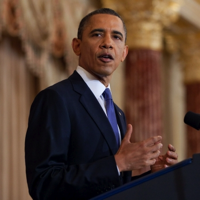
When President Barack Obama addressed the world’s Muslims from Cairo in 2009, his message, to put it bluntly, added up to, “Please love America — or at least stop hating it.” Two years later, when Obama took the podium once again to address the restive Middle East, his message was much different, but just as stark. This time he seemed to be saying, “Please believe that America still matters.” Obama’s May 19 speech from the State Department in Washington represented a desperate attempt at relevance. The president was essentially trying to demonstrate that during this transformative phase in the region, […]
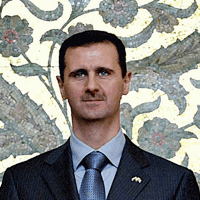
VIENNA — Last week was an eventful one for Syrian President Bashar al-Assad. With popular uprisings across Syria showing no sign of abating, international condemnation of the Syrian government’s violent repression of the demonstrations intensified. On the eve of his highly anticipated speech on the Middle East, U.S. President Barack Obama announced sanctions against Damascus. And in an unprecedented move, the U.S. Treasury Department added Assad himself to its list of individuals under targeted financial sanctions. On Monday, the European Union, too, imposed its own set of sanctions. Yet amid the domestic political earthquake that is shaking Assad’s rule, another […]
Israel’s minister of industry, trade and labor recently led a business delegation to Brazil, seeking to boost economic ties. In an email interview, Sean Goforth, a teacher of international political economy at Coastal Carolina University and a Latin American blogger for the Foreign Policy Association, discussed Brazil-Israel relations. WPR: What is the extent of the economic and political relationship between Israel and Brazil? Sean Goforth: The two countries have a history of friendly but rarely robust relations. Ambassadors have been regularly exchanged since the 1950s, while trade flows have been low. Bilateral trade totaled less than a billion dollars in […]

Much of the reaction to President Barack Obama’s speech on U.S. Middle East policy last Thursday focused on his reference to Israel’s pre-1967 borders as the basis for a future two-state solution with Palestine. But Obama’s speech was far more focused on long-term realities, suggesting that he is not really willing to push for some historic Israeli-Palestinian peace plan against the background of the Arab Spring. In fact, it’s fair to wonder why he chose to expend any of his political capital on this deadlocked issue, especially since he had to know that Israeli Prime Minister Benjamin Netanyahu would reject […]
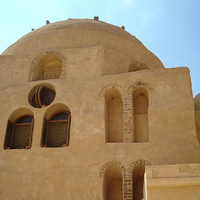
CAIRO — When the 9-year-old students at a private British school here skip down the hall for religion class, the children head in one of two directions. Muslim students shuffle into one classroom with their books on Islam, and Christian students to another with their texts on Jesus and the disciples. National policy in Egypt dictates that Muslim children study Islam and Christian students learn about Christianity. And while Christian students do acquire some knowledge of Islam through Quranic readings in standard Arabic classes, the exposure is limited. Though it might seem anecdotal, the education policy is in fact revealing: […]
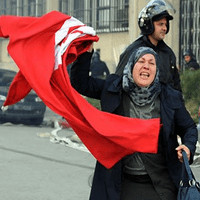
The future of women’s rights in the Arab Spring countries has been an open worry in recent months. Observers have noted there are no women in the transitional government in Egypt. Fundamentalist elements in Yemen that had opposed raising the marriage age for girls, currently at 8 years old, are among the chief opposition forces trying to bring down the Saleh government. Paraphrasing T.S. Eliot, spring might well be the cruelest season for women in the Arab world. It is in this context that recent reports in the Egyptian media are so troubling. According to the Egyptian Center for Women’s […]
Apparently President Barack Obama’s speech on U.S. Middle East policy has created quite the uproar among those who are shocked to learn that there is gambling going on in Rick’s place. So be it. For me, I’ll limit my textual analysis to the speech’s few sentences that might end up having a real-world impact. First place goes to this one, which represents the kind of contractual language against which future U.S. policy should be held accountable: Our support for these principles is not a secondary interest — today I am making it clear that it is a top priority that […]

If terrorism recedes as the central defining question of contemporary international relations, will “natural security” rise to take its place? Thom Shanker sees natural security emerging “not just by competitive economic growth, but also by potentially disruptive scarcities — depletion of minerals; desertification of land; pollution or overuse of water; weather changes that kill fish and farms.” Natural security, and its potential to fuel new conflicts between states, is becoming an issue because of the rapid growth of a truly global middle class — projected to encompass some 5 billion people by 2030. Two of the drivers of a middle-class […]

When the Arab Spring began erupting late last year, most world leaders responded with a mixture of bewilderment and incoherence. Whether in Tunis or Cairo, Washington or Paris, heads of government seemed confused about how to react to the mass popular demands for democratic change. That, however, was not the case inside the palaces that house the reigning monarchs of the Middle East. There, the swelling political seas were met with a steady hand on the rudder. As they watched besieged presidents plead or do battle with their people, and as they observed Western leaders nudge and later withdraw their […]
There are reports that the once-banned Tunisian Islamist party, Hizb Ennahda, has emerged as the country’s most powerful political force ahead of July elections for the transitional national assembly that will be tasked with reforming the Tunisian constitution. Close observers of Tunisia, however, say the country’s post-authoritarian political space is still in its early stages. So while an Ennahda victory may be likely, it would not necessarily signal a full-blown Islamic takeover of the government. “I think fears about Ennahda have been ramped up substantially more than they need to be,” says Christopher Alexander, a political scientist at Davidson College […]
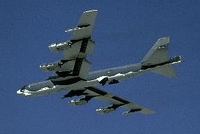
The air campaign against Libya is now well into its third month, and there is as of yet little sign of progress on either side. What does this mean for the future of airpower? With the exception of small special forces teams and several warships, the military aspect of the Libyan intervention has been conducted from the skies. Gen. Sir David Richards has now called for an expansion of the air campaign to include leadership targets, with the goal being the removal of Moammar Gadhafi’s government. This brings a strategic element to a campaign that has thus far lacked coherence […]
